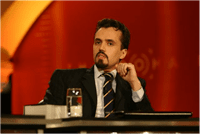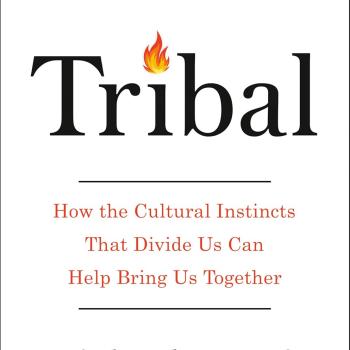 By: H.A. Hellyer - June 4, 2009
By: H.A. Hellyer - June 4, 2009
As symbolism goes, this was quite symbolic. Obama could have spoken from the Azhar University, the premier Islamic educational institution, rather than Cairo University, but Azhar was a ‘joint host', and Obama visited at one of the most beautiful and famed mosques of Cairo: the Sultan Hassan mosque, where the mufti of Egypt (or his closest students) often gives the Friday sermon. (Bit of trivia for Western readers: it is also the mosque that sees the largest proportion of Muslim Westerners in Cairo.)
More Jewish, Christian, Muslim perspectives on Obama's Speech can be found here.
It ironically took place on a historic day for other reasons - 20 years to the day that Ayatollah Khomeinei of Iran died. How was Obama going to speak about modern Islamist movements, a significant political force in the Muslim world? How was he going to speak about Iran? How was he going to talk about democracy, a la the 20th anniversary of the events of Tiananmen Square in China (also on June 4th)?
This speech was of two parts: a lengthy preamble, which spoke of general issues. He recalled how Islam carried the light of enlightenment in the West, how Islam and the US are not exclusive to one another, and how they shared very much. Here, as at the end of his speech, he was very convincing as someone who believed that a relationship based on mutual interest and mutual respect could be a reality, and should be a reality.
The second part was about topics: there were a couple he mentioned by way of the preamble, such as attacking Islamophobia, and upholding the right of Muslim women to wear the hijab if they so chose (which will be heard badly in many parts of Europe). But then he mentioned 7 topics: violent extremism (and he did not use words like jihadis), the Palestinian-Israeli conflict, Iran, democracy promotion, religious freedom, women's rights, and economic development.
The President also chose to cover women's rights (particularly women's education) and religious freedom - two topics which are important, but which are not particularly issues of disagreement between the West and the Muslim world. He might well have covered the protection of the environment than either of these two, even though it was refreshing to hear him talk about the rights of Muslim minorities in the West.
On the other topics: he pulled it off on ‘violent extremism', covering Iraq & Afghanistan sufficiently, without any surprises. He did particularly well on the issue of democracy: the words he used will make it very uncomfortable for all undemocratic governments, including Arab ones. Members of the mother group of political Islamism attended Obama's speech, which could be a sign that the engagement with the Muslim Brotherhood crowd has won out, in DC provided the Brotherhood play by democratic rules.
On nuclear weapons, he warned Iran, as well as issuing a promise to seek a world without nuclear weapons. But, he is going to have to make that more than just words. Democracy encouragement - what will that mean for all countries in the Muslim world? What about the eradication of nuclear weapons all over the world?
The key topic, and the one he spoke on more than the rest, was the one people were most interested in hearing: the Palestinian-Israeli conflict. He will have annoyed many in the Muslim world by drawing attention to the Holocaust - a Holocaust that the Muslim world was not responsible for or engaged in. He will have made the Israelis feel very much out on a limb by insisting on a Palestinian state, and a rejection of settlements. But he did not bring up two of the major issues of the conflict: the status of Jerusalem and the refugee problem.
The entire Muslim world was probably watching this, and perhaps there was an emphasis on the Arab world more than its demographic warrants. But, after all, this is about fault lines, and it is in the Arab world fault lines most exist. All in all, one has to recall: frankly speaking, neither Bush, nor Obama's defeated opponent in the presidential election, are likely to have ever said words like Obama did in Cairo. His quotations from the Qur'an and his general demeanour may have won him goodwill and optimism from the Muslim world; they will now be waiting for him to put ideas into action.
Dr. H. A. Hellyer is Fellow of Warwick University (UK), and Director of the Visionary Consultants Group (UK, Malaysia & Egypt), a Muslim world - West relations consultancy.
1/1/2000 5:00:00 AM




